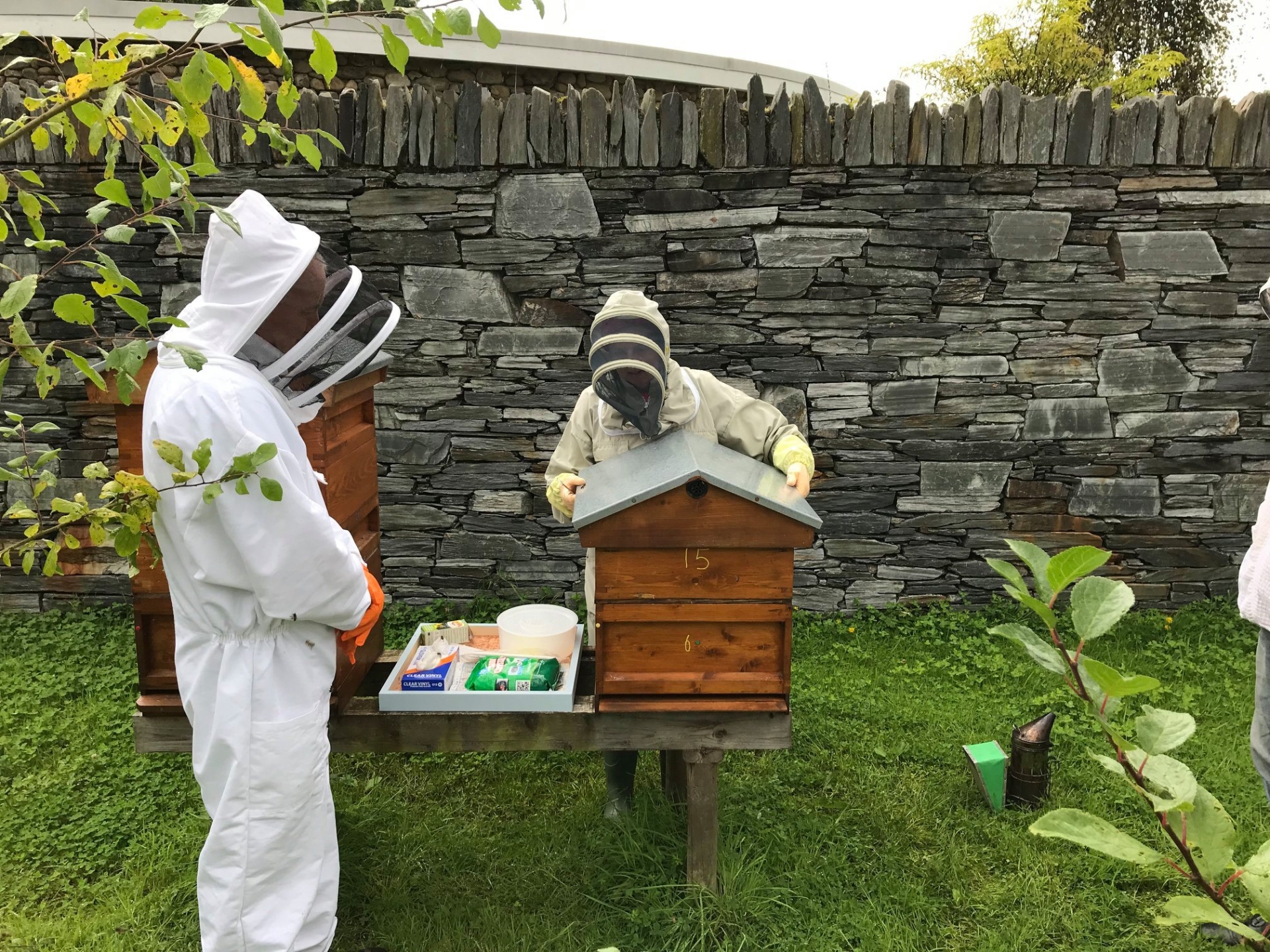
There is a real buzz on the Donegal air this week after the Three Rivers Beekeepers Association (TRBKA) revealed that their annual honey show in Castlefinn is back, following the Covid break.
They are looking forward to meeting lots of budding new beekeepers, as well as meeting old friends.
Welcoming members from across Donegal, Derry/Londonderry and Tyrone, our Honey Show will showcase the best from the North West.

The Show will take place on Sunday, October 9 2022 from 2pm to 6pm in the CPI Centre, Castlefinn and is a FREE event.
The Honey Show brings together all aspects of bee keeping, honey making and bee related crafts in a day for suitable for beekeepers and non-beekeepers alike. Honey shows are a great way to meet beekeepers and learn more about bees and beekeeping.
Full details about the honey show, the competitions, talks and exhibits are at www.threeriversbeekeepers.ie
While the judging is happening, we host beekeeping talks and demonstrations in the Main Hall. Throughout the afternoon attendees will be able to visit the competition stands, see the judges at work, talk to local beekeepers, and learn about beekeeping crafts such as candle making. For novices and those getting into beekeeping there are experienced beekeepers on hand to quiz.
And if you are already a beekeeper, there are talks on more advanced subjects to increase your beekeeping knowledge.

Remember - you don't have to be a beekeeper to come along or take part in our competitions.
Competitions
Beekeepers and other entrants make their submissions to the Honey Show competitions on the morning of the event – between 9am and 12.30pm. There are different types and classes of honey, honey cakes, mead, artwork and much more.
Top competition classes for non-beekeepers including baking, crafts, flower arranging, and photography.
they welcome everyone - beekeeper or not - to the competitions. See website for more details of how to enter. www.threeriversbeekeepers.ie
Afternoon Programme
14:00 Welcome Address by Three Rivers BKA Chair, Connell Herron
14:10 ‘Propolis’ by Ulster Beekeepers’ Association Chair, John Hill
15:10 Refreshments, bee chat, opportunity to view stalls and see Judges at work
16:00 ‘It’s not all about the ladies’ by Federation of Irish Beekeepers’ Association Senior Lecturer, Ethel Irvine
16:45 Experiences of a new beekeeper
17:00 Presentation of prizes

* a honey bee visits 50 to 100 flowers during a collection trip
* a colony of bees consists of 20,000-60,000 honeybees and one queen. Worker honey bees are female, live for about 6 weeks and do all the work
* the role of the queen bee is to fill the hive with eggs. She is the busiest in the summer months, when the hive needs to be at its maximum strength, she lays up to 2,500 eggs per day
larger than the worker bees, the male honey bees (also called drones), have no stinger and do no work at all. All they do is mating. In fact, before winter or when food becomes scarce, female honeybees usually force surviving males out of the nest
only worker bees sting, and only if they feel threatened and they die once they sting. It is estimated that 1100 honey bee stings are required to be fatal
* in order to produce 1 pound (450g) of honey, 2 million flowers must be visited
a hive of bees must fly 55,000 miles to produce a pound of honey (approx. 450g). One bee colony can produce 60 to 100 pounds (27kg to 45kg) of honey per year.
* honey contains all of the substances needed to sustain life, including enzymes, water, minerals and vitamins
honey is the only food to contain ‘pinocembrin’, an antioxidant that improves brain function
* one bee will only make 1/12 of a teaspoon on honey in its entire life
* many plants rely on insects like bees in order to be pollinated; which is why they provide nectar to say thanks
* each colony smells different to bees, this is so they can tell where they live
* bees have been around for more than 30 million years
* there are lots of different types of honey which taste different depending on the flowers used to make it
* the term “honeymoon” is derived from an old northern European custom in which newlyweds would consume a daily cup of mead, made with fermented honey, for a month honey never spoils. Ever
* Ireland has 98 bee species: 1 honeybee, 20 bumble bees and 77 solitary bees
Three Rivers Beekeepers Association (TRBKA) is a friendly group of beekeepers in the North West of Ireland.
Based out of Doneyloop, they have members from across Donegal, Tyrone and Derry-Londonderry. Always open to new members, they welcome novices and experienced beekeepers alike.
Subscribe or register today to discover more from DonegalLive.ie
Buy the e-paper of the Donegal Democrat, Donegal People's Press, Donegal Post and Inish Times here for instant access to Donegal's premier news titles.
Keep up with the latest news from Donegal with our daily newsletter featuring the most important stories of the day delivered to your inbox every evening at 5pm.